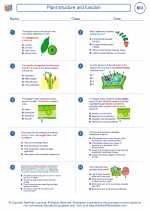What are neutrons?
Neutrons are subatomic particles with a neutral charge, meaning they do not have an electric charge. They have a mass slightly larger than that of protons and are essential for the stability of an atom's nucleus.Role of Neutrons
Neutrons play a crucial role in determining the stability and mass of an atom. They help to bind the protons together in the nucleus through the strong nuclear force, which prevents the repulsion between positively charged protons. This is essential for the stability of the nucleus.Properties of Neutrons
- Neutrons have a mass of approximately 1.675 x 10^-27 kg. - They do not have an electric charge, and thus are not affected by electric fields. - Neutrons are affected by the strong nuclear force and the weak nuclear force.Isotopes and Neutrons
The number of neutrons in an atom can vary, leading to the existence of different isotopes of an element. Isotopes are atoms of the same element that have the same number of protons but different numbers of neutrons. The variation in the number of neutrons affects the stability and other properties of the isotope.Neutrons in Nuclear Reactions
Neutrons play a crucial role in nuclear reactions, such as nuclear fission and nuclear fusion. In nuclear fission, neutrons are used to induce the splitting of atomic nuclei, releasing energy. In nuclear fusion, neutrons are involved in the process of combining atomic nuclei to release even larger amounts of energy.Study Tips:[Neutrons] Related Worksheets and Study Guides:
.◂Biology Worksheets and Study Guides High School. Plant structure and function
Worksheet/Answer key Plant structure and function
Plant structure and function  Worksheet/Answer key
Worksheet/Answer key Plant structure and function
Plant structure and function  Worksheet/Answer key
Worksheet/Answer key Plant structure and function
Plant structure and function  Worksheet/Answer key
Worksheet/Answer key Plant structure and function
Plant structure and function  Vocabulary/Answer key
Vocabulary/Answer key Plant structure and function
Plant structure and function  Vocabulary/Answer key
Vocabulary/Answer key Plant structure and function
Plant structure and function 

 Worksheet/Answer key
Worksheet/Answer key
 Worksheet/Answer key
Worksheet/Answer key
 Worksheet/Answer key
Worksheet/Answer key
 Vocabulary/Answer key
Vocabulary/Answer key
 Vocabulary/Answer key
Vocabulary/Answer key

The resources above cover the following skills:
Concepts of Life Science (SC1, SC2, SC3)
The student demonstrates an understanding of the structure, function, behavior, development, life cycles, and diversity of living organisms by describing the structure-function relationship